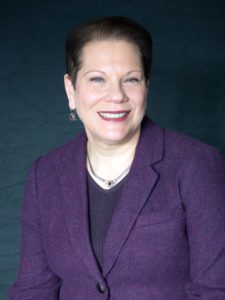Commentary on Parshat Shoftim (Deuteronomy 16:18 – 21:9)
Maybe it is not supposed to be fair. Women’s rights are under siege as states enact draconian laws restricting a women’s access to safe abortion. Too many elected legislators (mostly white men) use their platform to push through appointments of judges and justices who will support their dirty work: making abortion illegal and, therefore, incredibly unsafe. At the same time, they have limited or cut funding for birth control.
While abortion rates have continued to decline in the last decade by nearly 25 percent, the battle against abortion could result in thousands of women enduring unsafe abortions. In the years since Roe v. Wade in 1972, thousands of American women’s lives have been saved by access to legal abortions. Yet now, women’s reproductive rights are under attack. Many women face mandatory delays, biased counseling requirements, restrictions on young women’s access, and limited public funding (the Hyde Amendment), among other punitive and onerous restrictions. Missouri has even legislated what amounts to sexual assault on women seeking abortions (with forced pelvic exams.) NARAL reports that abortion-related deaths are rare in countries where abortion is legal, accessible, and performed early by skilled providers. Yet, even as it becomes more difficult to find these services, women will not stop seeking ways to end unwanted pregnancies.
Sign up to receive Torah from T’ruah in your inbox each week.
The challenge of our time is that too many legislators, both state and federal, have made the denial of abortion rights their singular priority. These politicians are cynically, shamefully focused on filling the judiciary with justices who will undo or overturn Roe v. Wade. This is a direct contradiction of the Torah’s call to justice. In Parshat Shoftim, we read the soaring words:
You shall appoint magistrates and officials for your tribes, in all the settlements that the Lord your God is giving you, and they shall govern the people with due justice. You shall not judge unfairly: you shall show no partiality; you shall not take bribes, for bribes blind the eyes of the discerning and upset the plea of the just. Justice, justice shall you pursue, that you may thrive and occupy the land that the Lord your God is giving you. (Deuteronomy 16:18)
The medieval scholar, Rashi, comments that officials must “appoint judges who are expert and righteous to give just judgment.” (Rashi referencing Sifrei Devarim 144:7.) Talmudic sages don’t mince words; “Reish Lakish says: Anyone who appoints over the community a judge who is unfit for the position, due to his lack of knowledge or wickedness, is considered as though he plants an ashera (a goddess idol) among the Jewish people.” (Avodah Zarah 52a)
Find more commentaries on Parshat Shoftim
How shall leaders govern with “due justice”? A Talmudic story explains:
When the verse states: “Justice, justice, shall you follow,” one mention of “justice” is stated with regard to judgment and one is stated with regard to compromise. How so? Where there are two boats traveling on the river and they encounter each other, if both of them attempt to pass, both of them sink, as the river is not wide enough for both to pass. If they pass one after the other, both of them pass. And similarly, where there are two camels who were ascending… where there is a narrow steep path, and they encounter each other, if both of them attempt to ascend, both of them fall. If they ascend one after the other, both of them ascend. (Baraita, Sanhedrin 32b:6)
Due justice requires that we widen the path, allowing for respect for each individual. When one group knocks the other over, all of us suffer; our society is damaged by perverted justice. It comes down to real lives, especially women’s lives. Judicial appointments that are designed to bring about an ideologically-based outcome negating a woman’s right to choose will lead to devastating outcomes.
 No one is in favor of abortion; Jewish tradition is highly nuanced on this issue, which is a whole separate d’var Torah. This is about preserving lives. The call to justice demands that our legislators and judges be selected based on their character, knowledge, experience, and wisdom. We have a sacred task to protest ideological judicial appointments that can lead to harming women. Our legislators and judges must be held accountable for their protection of women’s reproductive rights. Women’s lives are at stake. Upholding Roe v. Wade is how we, as a nation, will thrive.
No one is in favor of abortion; Jewish tradition is highly nuanced on this issue, which is a whole separate d’var Torah. This is about preserving lives. The call to justice demands that our legislators and judges be selected based on their character, knowledge, experience, and wisdom. We have a sacred task to protest ideological judicial appointments that can lead to harming women. Our legislators and judges must be held accountable for their protection of women’s reproductive rights. Women’s lives are at stake. Upholding Roe v. Wade is how we, as a nation, will thrive.
Rabbi Amy Joy Small has been rabbi of Ohavi Zedek Synagogue in Burlington, Vt., since 2016.

